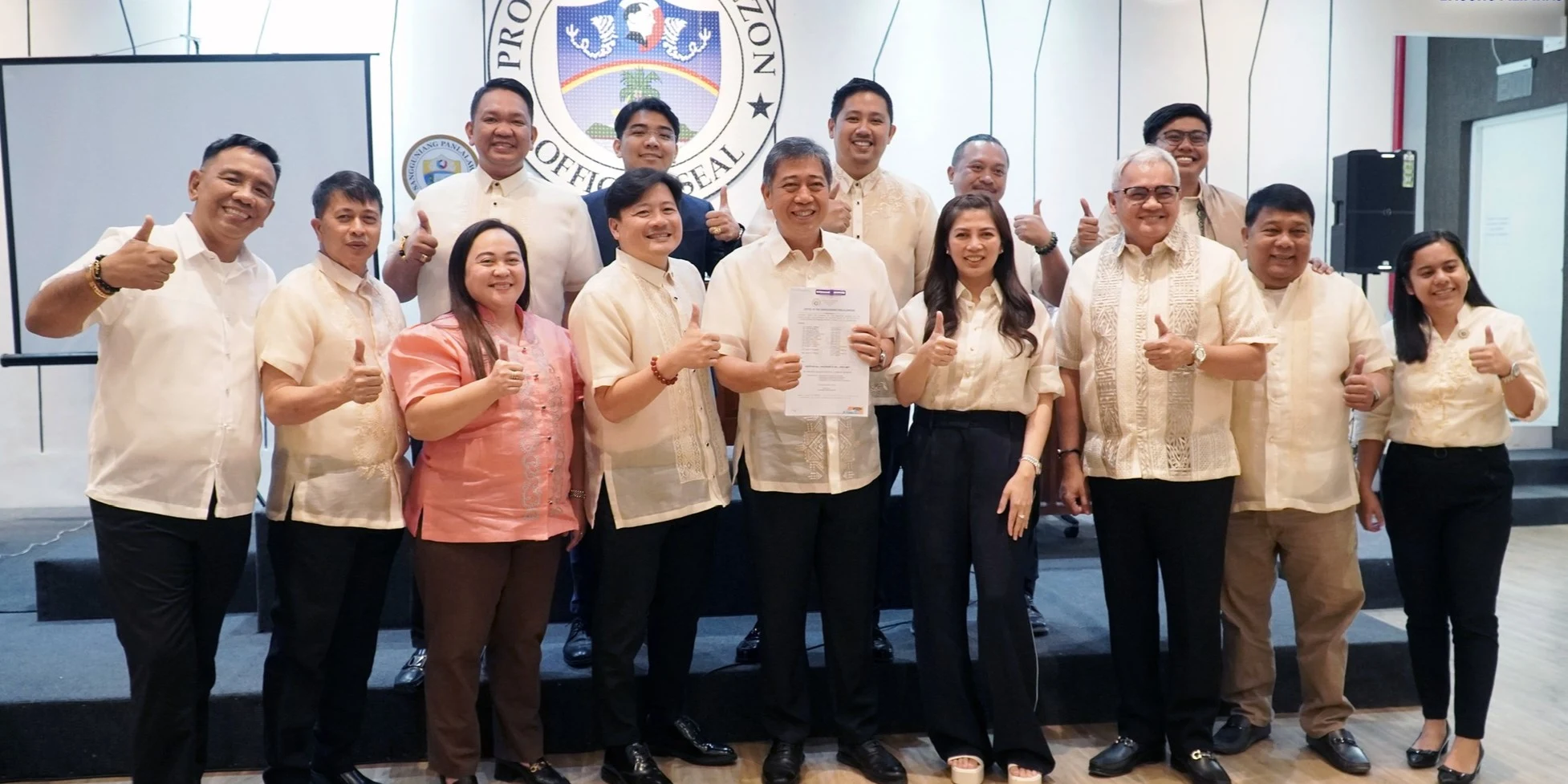By Nimfa Estrellado Quezon Provincial Sangguniang Panlalawigan, led by Vice Governor and Presiding Officer Anacleto "Third" Alcala...
LUCENA CITY - Environmental law is transforming worldwide in response to technological innovation, the climate crisis, and demands for social justice. In the Philippines, Quezon province faces a severe environmental assault. Destructive fishing practices, rampant poaching, and unchecked development threaten not only the province's precious ecosystems but also its food security.
While environmental public interest groups such as Tanggol Kalikasan and the Forest Protection Council are spearheading the fight to protect Quezon's resources, despite their efforts, environmental degradation continues to escalate.
Recognizing this urgent need, the Quezon Provincial Sangguniang Panlalawigan, led by Vice Governor and Presiding Officer Anacleto "Third" Alcala III, made a significant step towards environmental protection by passing the 2024 Revised Environmental Code of Quezon on March 11, 2024.
This comprehensive code establishes a framework to improve environmental security and promote sustainable practices throughout the province. The new code emphasizes protecting natural resources and promoting a balanced ecosystem. It outlines policies and procedures designed to safeguard the environment for future generations.
The Provincial Government and the Provincial Government Environment and Natural Resources Office (PGENRO), under the leadership of OIC-PGENRO John Francis Luzano, are committed to the ongoing protection of Quezon's natural environment.
According to Luzano , the implementation of this code will ensure that development in the province is done responsibly and in harmony with nature. He also highlighted the importance of community involvement and education in achieving long-term environmental sustainability goals.
Jay Lim, project officer of Tanggol Kalikasan, commends the Provincial Government and PGENRO for their demonstrated commitment to environmental protection. "The newly passed 2024 Revised Environmental Code of Quezon is a crucial step," he emphasizes, "and its timing couldn't be more urgent."
Lim highlights Patrol.org, an open-source platform monitoring Philippine waters, where Tayabas Bay shows a concerning concentration of red dots. These dots likely signal continued illegal fishing practices that jeopardize the bay's ecosystem and the communities relying on it.
"While a full review of the code is ongoing, this demonstrates our local legislators' positive action. We commend the Sangguniang Panlalawigan," says Lim.
"But success requires collaboration. We all share a stake in protecting our food, air, and water. Uniting government, NGOs, and the community behind this initiative, with dedicated funding and clear implementation, is vital to ensuring these laws become more than just words." he added.
Illegal logging persists in Mauban, Quezon, despite arrests
Illegal logging and fishing remain rampant problems in Mauban and throughout the Lamon Bay and Tayabas Bay regions. Despite a 2022 joint operation by the Department of Environment and Natural Resources (DENR) and the National Bureau of Investigation (NBI) that resulted in arrests of illegal loggers in Cagsiay 2, Mauban, and Quezon, the situation persists.
The environmental group Kasama ng Kalikasan has documented ongoing illegal logging activities through video and photos. These operations take place in Brgy. Cagsiay 2 and 3, Sitio Batok-Toro, Brgy. San Miguel, Brgy. Liwayway, and other forested barangays of Mauban.
Cagsiay 3 residents report that while DENR-CENRO Tayabas, which covers the area, responded quickly to a previous incident publicized on social media, illegal logging continues. This response resulted in arrests and the confiscation of wood.
In Mauban, Quezon, illegal fishing operations continue to plague the region. Despite crackdowns, methods like the destructive Modified Danish Seine, locally known as "buli-buli,” mode of fishing in Philippine waters persist, with operators reportedly using the Sabang and Tapucan rivers to evade detection. This ongoing disregard for regulations raises questions about why these illegal activities remain unchecked.
Residents are calling on local government officials to take decisive action to address the situation and dispel any perceptions of complicity or inaction. Evidence from first-hand monitoring and satellite data in Tayabas Bay further confirms the extent of illegal commercial fishing practices.
Also on March 18, 2024, the Sariaya Coast Guard took legal action against five alleged blast fishermen from Brgy. Barra, Lucena City: Ernie Vale, Edgar Portez Jr., Guillermo Lambino, Edgar Sobreviñas, and Rexcel Dondonilla. The fishermen face charges for violating Section 92, RA 8550, which prohibits destructive fishing methods.
Sherwin Rosales, Deputized Fish Warden and Fishery Technician of the Sariaya Municipal Agriculture Office, filed the case based on the confiscated bottled ammonium nitrate and other evidence found in their possession. The Sariaya Coast Guard is urging other coastal communities to remain vigilant and report any suspicious fishing activities to prevent further environmental damage in Tayabas Bay.









No comments